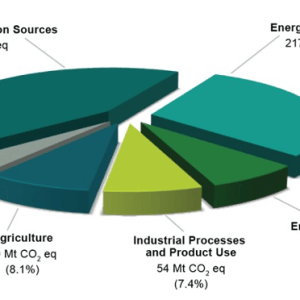This Post was submitted by Climate Scorecard Canada Country Manager Diane Szoller Best Organizational Source: Pollutant Inventories and Reporting Division of Environment and Climate Change Canada Every year, the Pollutant Inventories and Reporting Division of Environment and Climate Change Canada prepares and submits a national greenhouse gas inventory to the United Nations Framework Convention on...
Author: Diane Szoller (Diane Szoller)
Catastrophic Climate Change Related Weather Events Increase Loss of Life, Financial Loss, and Damage to Infrastructure and Property
This Post was submitted by Climate Scorecard Canada Country Manager Diane SzollerDuring the past year, the impact of climate change has increasingly been made evident by a series of extreme weather events around the world. Environment and Climate Change Canada (ECCC) confirms impacts including heat waves, wildfires, flooding, sea ice loss, and heavy rains, icing,...
Canada is Investing in Small Modular Reactors (SMRs)
This Post was submitted by Climate Scorecard Canada Country Manager Diane Szoller Natural Resources Canada (NRCan) reports that nuclear energy generated about 15% of Canada’s electricity in 2018. 13.5 gigawatts of power capacity was provided from 3 plants and 18 commercial reactors in Ontario and 1 plant, 1 reactor in New Brunswick. The EIA explains...
Increased Oil and Gas Production in Canada
This Post was submitted by Climate Scorecard Canada Country Manager Diane Szoller The biggest obstacle impacting 2030 and 2050 targets is increased oil and gas production/expansion of exports. In 2019, greenhouse gas emissions (GGEs) were relatively unchanged at 730 Mt CO2 eq, compared to 730 Mt CO2 eq in 2005. Emissions from oil and gas...
Canada’s Latest Reported Greenhouse Gas Emissions Level: a 21.4% Increase Compared to 1990
Submitted by Canada Country Manager Diane SzollerCanada’s Latest Reported Greenhouse Gas Emissions Level: 730 MT CO2 eq in 2019, a 21.4% increase compared to 603 Mt CO2 eq in 1990 (Data source Environment and Climate Change Canada reporting) Emission Reduction Goals Canada’s Environment and Climate Change Ministry submits a national greenhouse gas emissions (GGE) inventory...
Toronto: Canada’s Example of a Best Climate Practice City
This post was submitted by Climate Scorecard Canada Country Manager Diane Szoller In 2007, Toronto City Council unanimously adopted a climate action strategy and set the target of reducing emissions by 80% from 1990 levels by 2050. They unanimously reconfirmed the commitment in July 2017 and then adopted a short-term target of 30% emissions reduction...
Local NGO Best Climate Practice Canada: David Suzuki Foundation
This Post is submitted by Climate Scorecard Canadian Country Manager Diane Szoller As described on their website,* the David Suzuki Foundation (DSF) was created in 1989 inspired from a winning CBC radio series It’s a Matter of Survival. The theme of the series was that respect for nature and interdependence must be humanity’s top priority....
Climate Best Practice in Canada: Halifax Solar City
Submitted by Climate Scorecard Canada Country Manager Diane Szoller Renewable energy resources are on the rise in Canada and are expected to continue growing in the future. The Halifax Solar City (HSC) program is the first of its kind in Canada. This project is a community renewable best practice which offers property owners access to...
Canada Should Extend Practices that Reduced Energy Demand During COVID-19 Among Other Climate Mitigation Recommendations
Policy Recommendation # 1: Extend Practices that Reduced Energy Demand During COVID-19 Policy Recommendation # 2: Steps to Increase the Emission Reduction Targets of HEAHE Policy Recommendation # 3: Increase Accountability Measures for the Net-Zero Emissions Accountability Act In their latest Emissions Gap Report, UNEP tells us more countries are committing to net-zero emissions goals...
Canada’s Electricity is Largely Hydro-Driven
National Resources Canada describes the country’s total electricity generation in 2018 as 641 terawatt hours (TWh), or 2% of the world’s electricity generation. The breakdown of Canada’s energy usage is as follows: 60% hydro, 15% nuclear. 7% coal, 11% natural gas, and 7% renewables. In 2019, Canada exported 60.4 TWh—or 8%—of its electricity to the...











